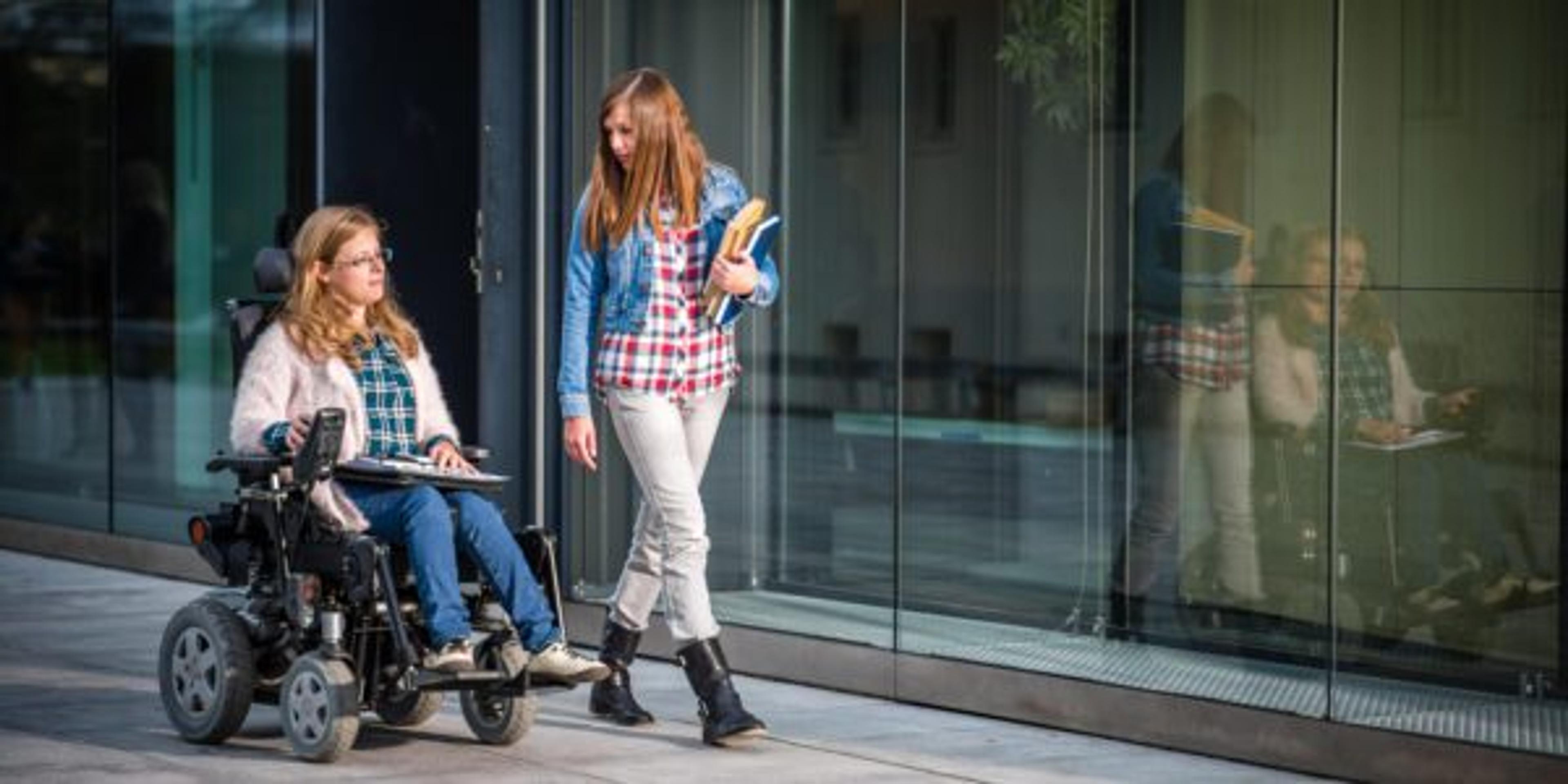How to Be an Accessibility Ally on a College Campus
Shandra Martinez
| 4 min read

Going to college is a rite of passage for many teens and young adults. Set up like small cities, most college campuses are places where students learn to live, work, study and socialize away from home for the first time. It can also be a place where they learn what it means to be an accessibility ally to new friends and fellow students.
The push for accessibility has been a big buzzword – and a force for positive change – on campuses in recent years. While all public and private colleges that receive federal funding are required by law to make their programs accessible to students who have disabilities, this can look different depending on the school, how the campus is laid out and the age of the classroom buildings and residence halls. For example, at colleges in cold-weather climates, some are better than others at quickly clearing snow off sidewalks to accommodate people who use wheelchairs or walking-assist devices. Others may have better audio systems at crosswalks to help those who are hearing impaired cross safely. Still others may have developed programs with smaller class sizes for students who have sensory issues triggered by crowded spaces. But there is usually room for improvement on campuses and that’s why accessibility allies are so important.
What is an accessibility ally? An accessibility ally is simply someone who, through their actions, shows that they support people with physical, mental or emotional disabilities in their desire to fully function and participate in all aspects of campus life. It’s a mindset that’s all about wanting the playing field to be level for everyone on campus so everyone can have the same opportunities.
You don’t have to be roommates or even best friends with someone on campus to act as an accessibility ally. The biggest way to help is often just educating yourself about the differences in people’s abilities and being ready to speak up or offer support if there’s an issue that needs to be addressed. For example, if a building’s automatic-opening door system is out of order, report it to the college so it can be fixed. In a sports stadium, make sure to leave wheelchair-accessible seating open for those who need those spots in order to attend. If you notice a student sitting next to you in class who is hard of hearing and is having trouble hearing the professor’s lecture, offer to go with them to speak to the teacher about accommodations that might be available.
Some other tips for being an accessibility ally on college campuses:
Be a good listener. Colleges are where you meet lots of different kinds of people. Be open to educating yourself about others’ disabilities and challenges.
Understand the strengths of your own campus. How does your college rank in terms of being wheelchair-friendly or inclusive to those with differing abilities? Just like campuses are rated in terms of tuition cost and post-grad placement, they are also ranked for inclusiveness by some publications, including New Mobility. It’s good to know where yours stands so you can advocate for improvements.
Offer support. You don’t have to be an accessibility expert to lend your voice in support. If there is a push to improve accessibility in programming or physical spaces, be part of the group signing a petition or asking for change.
Why being an ally is important. Being part of creating an inclusive society where everyone has an opportunity to participate is an important role. Most people don’t realize how widespread physical, mental and emotional disabilities are in the United States. According to the Centers for Disease Control and Prevention, an estimated 61 million people – about 1 in 4 – have some kind of disability. This can include hearing, vision and sensory impairments, intellectual disabilities, or physical disabilities – anything that puts them on unequal footing when it comes to participating fully in society.
By being committed to listening and educating yourself, you can be an accessibility ally and make sure you are doing your part in smoothing the way for others to enjoy their college experience.
Related:
Photo credit: Getty Images





